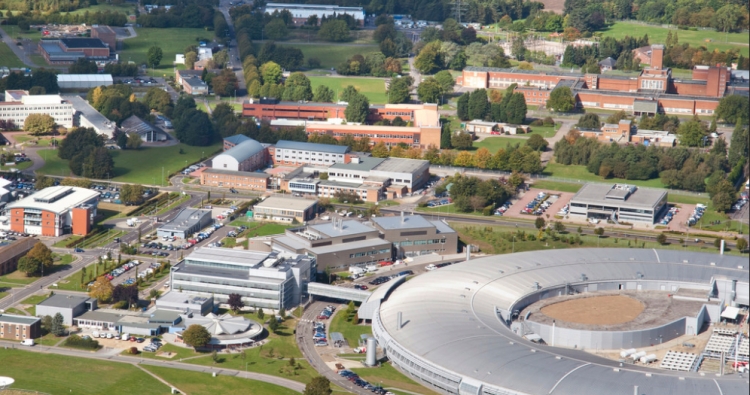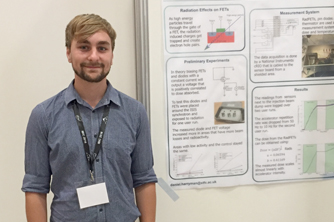What do you do in your job?
Beam diagnostics is described as the “eyes and ears” of a particle accelerator. During machine operation several parameters such as beam intensity, beam profile, beam position and beam losses have to be monitored. Using a number of monitors we measure these different parameters and feed this information back to the physicists controlling the accelerator. My role specifically is designing and programming the electronic systems that acquire and process the data from these monitors.
Daniel’s top tips for a career in science
- Decide what you want to do, and work out how to get there: Each part of education is a stepping stone to a dream job. If you have a target job or career in mind it’s easier to work out what to do after GCSE and also gives you something to motivate you.
- Enjoy learning: It wasn’t until I reached college that I got motivated and started to enjoy what I was learning, as soon as I did studying become less of a chore and become something I really enjoyed.
- Keep asking questions: Don’t accept things the way that they are, and try to understand how everyday things work.
- Take advantage of opportunities: With organisations running local Code Clubs, First Lego Leagues, and STEM events, it’s easier than ever to get into science and engineering and with cheap electronics like Arduinos and Raspberry Pi’s people can start building and tinkering at such a young age.
- Learn from your mistakes: Failure is always an option, and it’s inevitable that it will happen at some point. The key is to learn from these mistakes and failures, work out why things didn’t work and how they can be improved in the future.
Summarise the impact your job has on everyday life
Without people working beam diagnostics, particle accelerators would not be reliable enough to work. ISIS has been used for many scientific discoveries, without staff keeping the accelerator running, these would not have been possible.
What’s the best thing about your job?
In my job role my projects are presented to me as problems that need solving. In the world of electronics there’s a number of ways to solve any problem whether it be using analogue electronics or something like a microcontroller or an FPGA. Here, I’m allowed to decide what way I want to implement a solution, this gives me a lot of creative freedom to learn new skills, but it also keeps the role very interesting and a lot more fun.
What did you study at school?
After GCSE I went to college to study a Level 3 Advanced Diploma in Engineering. After this I went to Portsmouth University where I spent 5 years getting an Undergraduate Master’s Degree (MEng) in Electronic Engineering (including a year’s work placement at National Instruments UK).
What inspired you into a career in science / engineering?
I was always a curious child; I remember always asking my father (who was a chemist) about how different things worked, and I also remember taking different things apart, and normally failing to put them back together.
When I finished GCSEs I had little or no idea what I wanted to do, and I essentially took a year out deciding what I wanted to do with my life working a part time retail job. My best GCSEs were maths and physics and I always loved electronics and gadgets so I thought I’d try and build them for a career. Eventually I signed up for a level three advanced engineering course at the local college, after that I went to university, and the rest is history.
Rutherford Appleton Laboratory

Rutherford Appleton Laboratory (RAL) is operated by STFC and located on the Harwell research and Innovation Campus in Oxfordshire.
It provides a thriving and collaborative environment for research in a number of areas, including particle physics, space science, astronomy, biology and biomedicine, and chemistry. Approximately 1,200 staff at RAL support the work of more than 10,000 scientists and engineers, chiefly from the university research community. RAL’s pioneering research in areas such as energy, security, healthcare and the environment addresses important challenges facing society.

